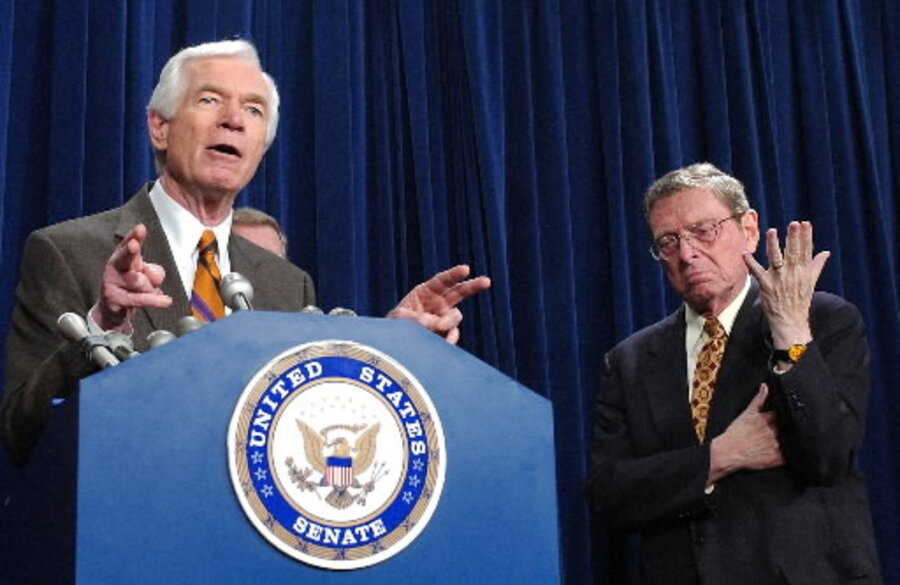The Senate filibuster – the parliamentary procedure that lets a single senator halt any legislation lacking the 60 votes needed to overcome his or her disapproval – has left many a bill to die in the upper chamber.
But use of the filibuster – and the associated "cloture" vote – has become a choke point in Senate business.
“The filibuster rule is abused in a way that I think no one ever really contemplated,” says Downey.
Want proof? Votes on cloture – the vote to overcome a filibuster – have skyrocketed in recent years. The last two sessions of Congress have produced 137 and 139 cloture votes, respectively. Before then, no Senate had gone much over 80. It took the Senate 57 years (1917 to 1974) to cross a total of 100 cloture votes.
A political system with so many "veto points," such as the filibuster, is a key problem, says David Karol, a political scientist at the University of Maryland. Where some might blame today's political parties, Mr. Karol says such fractiousness among parties was common throughout American history. "These political parties are natural and normal, and so it's not that easy to change them," he says. "But we could at least make a government so that when people win the election as Democrats did in 2008 and as Republicans did before that, that they can govern.”
Two senior senators, Carl Levin (D) of Michigan and Lamar Alexander (R) of Tennessee, recently wrote an op-ed arguing that “self-restraint” is the key to improving the Senate and limiting the legislative shackles imposed by frequent use of the filibuster.
Why the need for self-restraint? “Frequently,” they write, “senators in the majority think those in the minority introduce amendments to delay bills or raise extraneous issues. Those in the minority think the majority unduly restricts consideration of amendments. The result is often gridlock.”
How could the filibuster, an important tool to preserve the Senate's historic function as a body that is more deliberate and more protective of the minority party’s prerogative than is the House, be adjusted to make the Senate work better?
“In exchange for allowing a bill to come to the floor without the 60-vote exercise,” they write, “every senator would agree to limit consideration of amendments to those relevant to the bill before us. Vigorous and extended debate on the substance of important bills would still take place. Senators would have ample opportunity to offer amendments. But our proposal would give senators a more effective way to deal with the issues voters expect us to consider and would help restore public confidence in the Senate.”





